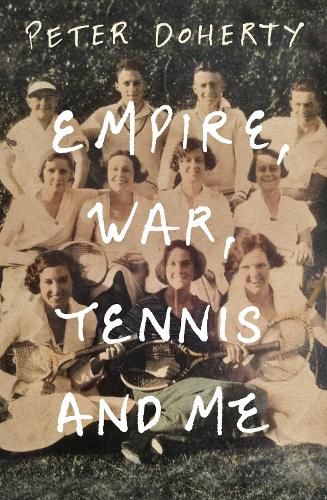Readings Newsletter
Become a Readings Member to make your shopping experience even easier.
Sign in or sign up for free!
You’re not far away from qualifying for FREE standard shipping within Australia
You’ve qualified for FREE standard shipping within Australia
The cart is loading…






For those who look, and think deeply, new connections emerge. Peter Doherty, one of the world’s foremost authorities on immunology, recipient of the Nobel Prize for medicine, and an active and respected commentator on public health, reflects in this book on empire, war and tennis.
Doherty identifies the origins of modern tennis within its imperial context, relating seemingly unlikely connections between the sport, its players and national militaries. He traces the fate of tennis-and its players-as a nascent force for internationalism and cultural tolerance within the context of World War II. And he personalises this account through an unsentimental but revealing depiction of his tennis-loving Queenslander uncles, at war and in captivity in the Pacific.
As Doherty shows, tennis and war have threaded their way through the lives of many people since the nineteenth century, in a way intriguingly unique to this sport. This is part of Peter’s story. And, as we come to realise, it is also part of the story of our world.
$9.00 standard shipping within Australia
FREE standard shipping within Australia for orders over $100.00
Express & International shipping calculated at checkout
For those who look, and think deeply, new connections emerge. Peter Doherty, one of the world’s foremost authorities on immunology, recipient of the Nobel Prize for medicine, and an active and respected commentator on public health, reflects in this book on empire, war and tennis.
Doherty identifies the origins of modern tennis within its imperial context, relating seemingly unlikely connections between the sport, its players and national militaries. He traces the fate of tennis-and its players-as a nascent force for internationalism and cultural tolerance within the context of World War II. And he personalises this account through an unsentimental but revealing depiction of his tennis-loving Queenslander uncles, at war and in captivity in the Pacific.
As Doherty shows, tennis and war have threaded their way through the lives of many people since the nineteenth century, in a way intriguingly unique to this sport. This is part of Peter’s story. And, as we come to realise, it is also part of the story of our world.